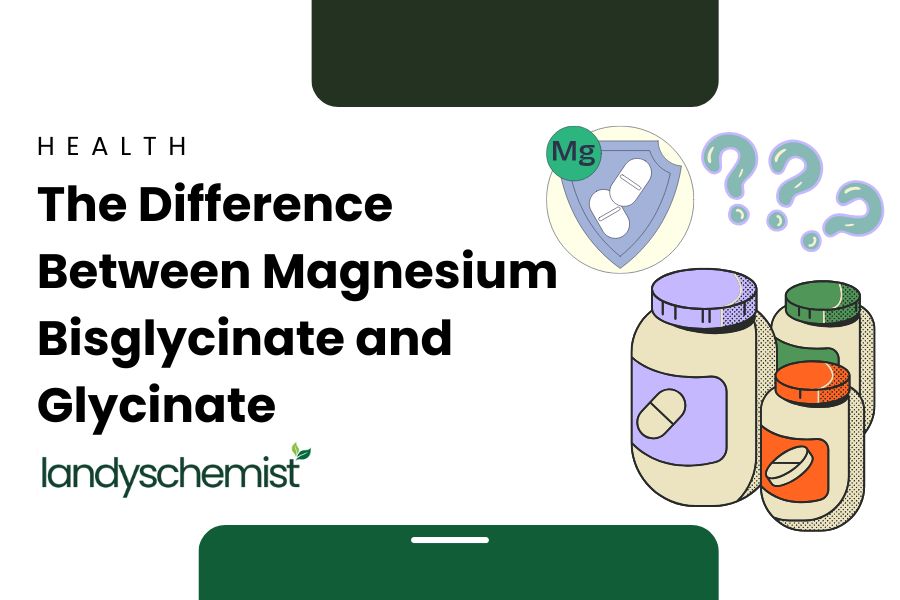
What is the Difference Between Magnesium Bisglycinate and Magnesium Glycinate?
What is the Difference Between Magnesium Bisglycinate and Magnesium Glycinate?
The short answer: there is no difference in their chemical structure or health benefits. Magnesium bisglycinate and magnesium glycinate are essentially the same compound, differing only in terminology.
Chemical Identity:
Magnesium bisglycinate is the accurate chemical name for the magnesium glycinate compound, represented by the formula C4H8MgN2O4. The name "bisglycinate" indicates that two glycine molecules (bi = two) are bound to one magnesium ion.
Supplement Labelling:
- Magnesium Bisglycinate: Used in scientific or technical contexts to describe the exact chemical structure.
- Magnesium Glycinate: The term commonly found on supplement labels, as it is more consumer-friendly and widely recognised.
Health Benefits:

The structure of magnesium bisglycinate offers high bioavailability, ensuring optimal absorption. This makes it an ideal choice for those with magnesium deficiencies (potentially 50% of the population), high stress levels, and digestive disorders, among many other health benefits. Read more in our comprehensie guide: Magnesium Glycinate Health Benefits.
Both forms provide the same benefits, including:
- Improves Sleep Quality: Magnesium glycinate has calming effects which promote better relaxation, helping to improve the duration and quality of sleep
- Supports Muscle and Nerve Function: It helps maintain proper muscle contraction, prevents cramps, and supports efficient nerve signalling
- Reduces Anxiety and Stress: The glycine in magnesium glycinate helps calm the nervous system, reducing anxiety and managing stress levels effectively
- Promotes Bone Health: Magnesium aids in calcium absorption, ensuring strong bones and preventing mineral imbalances
- Regulates Blood Sugar Levels: It helps stabilise blood sugar by improving insulin sensitivity and glucose metabolism
- Supports Cardiovascular Health: Magnesium helps regulate heart rhythm and supports overall heart and vascular health
- Gentle Digestive Support: This form of magnesium is easy on the stomach and less likely to cause laxative effects or gastrointestinal discomfort
- Reduces Symptoms of PMS: Magnesium glycinate can alleviate premenstrual cramps, mood swings, and other PMS-related symptoms by relaxing muscles and stabilising mood
Bioavailability and Tolerability:
Magnesium bisglycinate/glycinate is highly bioavailable, meaning it is absorbed well in the digestive tract and less likely to cause laxative effects compared to other forms, such as magnesium oxide or citrate.
Why the Two Names?
The dual naming can be confusing, but it boils down to clarity and marketing:
- Magnesium Bisglycinate: Preferred by scientists and manufacturers to denote the precise chemical makeup.
- Magnesium Glycinate: Chosen by supplement brands for its simplicity and familiarity, making it easier for consumers to identify.
Regardless of which name is used, the compound remains the same, offering a reliable source of magnesium to support numerous aspects of health. When shopping for supplements, remember that magnesium bisglycinate and magnesium glycinate are interchangeable. Both ensure you get a high-quality, highly absorbable form of magnesium.
You can find out more about other forms of magnesium available in our other blogs, including Magnesium Citrate and Magnesium Malate.
Recommendations










